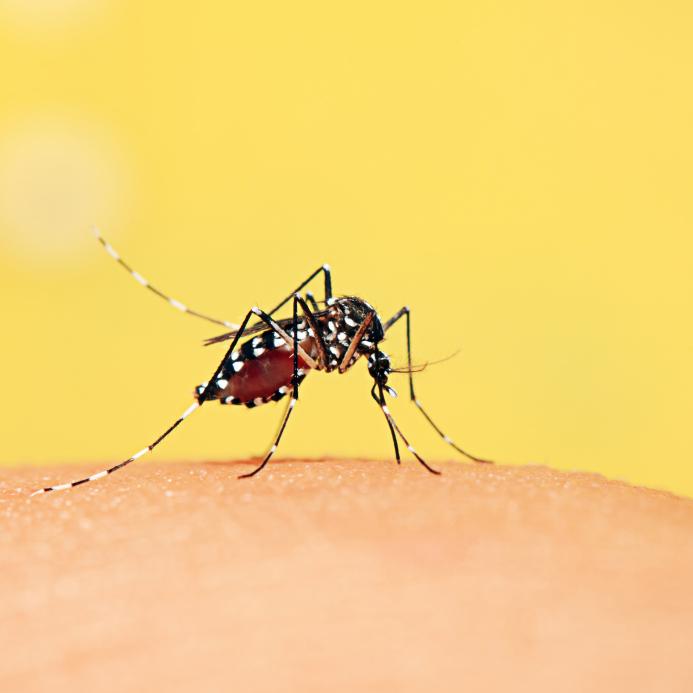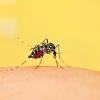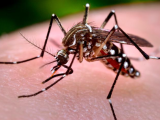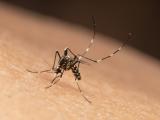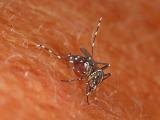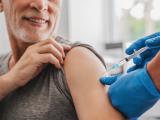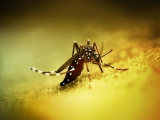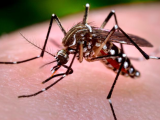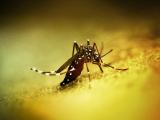Florida health officials and the US Centers for Disease Control and Prevention (CDC) today announced the nation's first locally acquired chikungunya cases, a notable development, but not a surprising one, given the rising number of infected travelers returning from the Caribbean outbreak region.
In a related development, Puerto Rico health officials declared a chikungunya epidemic, due to a rapidly rising number of cases there.
A statement today from the CDC described the first of two local chikungunya cases reported in Florida, in a man who had not traveled outside the United States. The agency said it is working closely with the Florida Department of Health to explore how the patient got sick with the virus.
Meanwhile, the Florida Department of Health (FDH) said today it has detected two locally acquired cases, one in Miami–Dade County and the other in Palm Beach County. The counties are on Florida's southern tip, about 70 miles apart: Palm Beach County to the west and Dade County to the east.
Enhanced surveillance
The announcement today comes about 7 months after the first chikungunya cases were detected in the Western Hemisphere, the CDC said. The outbreak in the Caribbean region has sickened more than 355,000 people, with the number of new infections continuing to grow by roughly 40,000 cases each week.
As a ripple effect, the United States—especially in Florida—and several other countries have reported a rising number of cases in travelers returning from outbreak areas, and health officials have boosted surveillance for the disease and warned that an infected patient can transmit the virus to mosquitoes, which can then transmit the disease to others through a bite
Roger Nasci, PhD, chief of the CDC's arboviral diseases branch, said in a statement that the arrival of the virus on the US mainland underscores the risk of this and other exotic pathogens. "This emphasizes the importance of CDC's health security initiatives designed to maintain effective surveillance networks, diagnostic laboratories, and mosquito control programs both in the United States and around the world."
The CDC said the chikungunya virus is transmitted by two mosquito species, Aedes aegypti and A albopictus, both of which are found in the southeastern part of the country and in some parts of the southwest. It said A albopictus is found farther north up the East Coast, through the Middle Atlantic states, and in the lower part of the Midwest.
CDC officials said it's not clear how the disease will spread in the United States, but they said the pattern might look like the dengue virus, with sporadic local transmission that doesn't trigger widespread outbreaks.
US imported cases rise to 234
So far, the CDC as of Jul 15 has received reports of 234 travel-related cases, 73 of them in Florida. The total is 96 more than the CDC reported the week before. Thirty-one states have reported cases, but most have reported fewer than 10. Besides Florida, states reporting more than 10 include California (11), New Jersey (12), Tennessee (13), and New York (20).
Fever and joint pain are the hallmarks of the disease, which typically lasts about a week and is rarely fatal. However, the CDC warned that the joint pain can be severe, debilitating, and persistent.
The virus does not spread from person to person, but mosquitoes that bite infected patients can pass the disease to other people. The CDC urged health workers to advise people with chikungunya infections to protect themselves from getting bitten by mosquitoes.
The FDH said it has been conducting surveillance for locally acquired cases.
Anna Likos, MD, MPH, the state's epidemiologist, said, "We encourage everyone to take precautions against mosquitoes to prevent chikungunya and other mosquito-borne diseases by draining standing water, covering your skin with clothing and repellent, and covering doors and windows with screens."
Epidemic in Puerto Rico
In other developments today, the US territory of Puerto Rico declared a chikungunya epidemic, the Associated Press (AP) reported.
Ana Rius, MD, the area's health secretary, said more than 200 cases have been reported as of Jun 25. The territory's first case was reported at the end of May.
The CDC has received reports of 121 locally acquired cases in Puerto Rico. The only other US territory in the Caribbean area to report local infections is the US Virgin Islands, which has detected 2 such cases.
See also:
Jul 17 CDC press release
Jul 17 FDH press release
Jul 15 CDC update on imported cases
Jul 17 AP story
